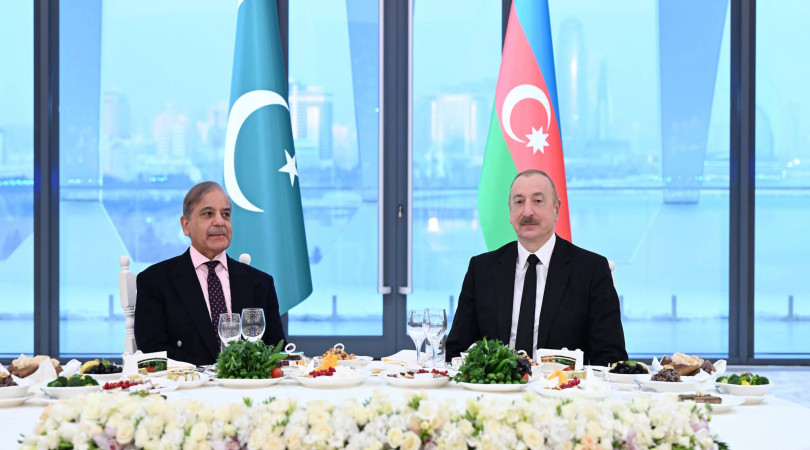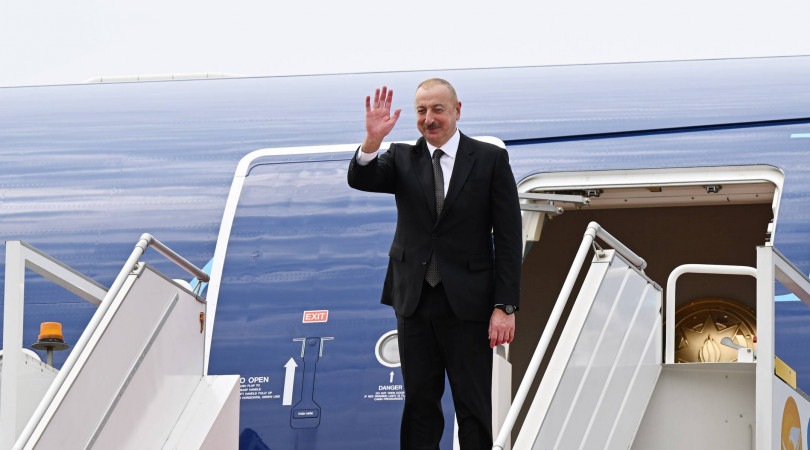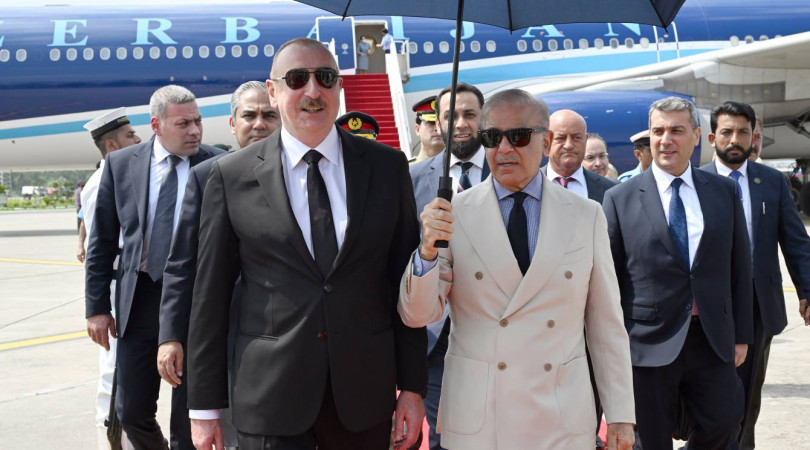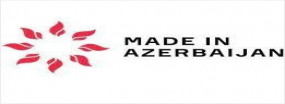Ilham Aliyev: Our strength is in Unity
In the early years of independence, Azerbaijan experienced great difficulties as it was beset by both economic and political crises. An economy in ruins and hyperinflation, a flood of refugees and internally displaced persons as a result of Armenian aggression, and an atmosphere of apathy and hopelessness had left few who could believe in a bright future for this country.
Today, Azerbaijan is the one of the most rapidly developing countries in the world in economic terms. Under the leadership of President Ilham Aliyev, Azerbaijan has become a leading power in Transcaucasia and undeniably Azerbaijan has developed remarkably in all sectors during the 11 years of his presidential tenure.
Ilham Aliyev started his political career in 1995 after being elected a member of the Milli Majlis (the National Assembly) and advancing to lead the Azerbaijani delegation at the Council of Europe. In 2003 and 2008, Ilham Aliyev won the presidential elections and was reelected to this post after the 9th October, 2013 national elections with an overwhelming majority.
During the first years of its independence, Azerbaijan faced aggression by neighboring Armenia but immediately the signing of the ceasefire agreement Azerbaijan concentrated all its efforts on economic development. After long negotiations with Western oil companies where Mr. Aliyev played a key role, in 1994 the “Contract of Century” for exploration of hydrocarbon offshore reserves of the Caspian Sea was signed heralding the renaissance of Azerbaijan.
Azerbaijani oil and gas are transported through pipeline network systems like Baku-Tbilisi-Ceyhan and Baku-Tbilisi-Erzurum. Implementation of two ongoing projects, the Trans Anatolian (TANAP) and Trans-Adriatic (TAP) pipelines, will provide direct delivery of Azerbaijani gas to Europe.
The direct foreign investments and the calculated oil strategy have given positive results. Substantial increase in oil production earned the country many billions in foreign exchange. The six-fold increase in gas production transformed Azerbaijan from a gas importing country into a gas exporter.
Following a long term strategy, the revenues from energy-related activities are collected in a transparent Oil Fund and these revenues are subsequently used for economic diversification. As a result of this policy tremendous development of non-oil sectors has been achieved and it is projected that by 2025 the revenues from only the IT sector will exceed the total incomes from the oil and gas sphere. The launching of the first Azerbaijani satellite “Azerspace-1” into orbit, establishment of the Trans-Eurasian information corridor and formation of the electronic government are just some examples of the innovation in the IT sector.
Tremendous achievements were made in the transportation field as well. Nearly 14 billion USD have been invested in this sphere as the number of international airports increased to 6 and the fleet of national flag carrier AZAL and marine transport were fully renewed. The completion of the Baku-Tbilisi-Kars railway link project in 2015 will facilitate the transport of goods and passengers from Central Asia via Azerbaijan to Europe making the country a transport hub for the region.
The economic growth of Azerbaijan is accompanied by a construction boom, development of the industry, infrastructure, agriculture, tourism and culture. Over the last decade, Azerbaijan became a leading regional investor and a global donor. Today the country is financing multi-billion projects in different countries of the world
In general, President I. Aliyev has always paid great attention to the humanitarian sphere. In the social sector, the average monthly amount of pensioners has increased by more than 8 times, the former Soviet Union savings were returned to population, the foundation for social mortgage was laid.
The development of science, education, healthcare, culture and sports in Azerbaijan contributes to the development of the entire humanitarian sector. The country has specific programmes in these areas being implemented. The investment made in education and science in Azerbaijan is giving results. The thesis of “transforming black gold into human capital” that was put forward a few years ago is already a reality. Thousands of Azerbaijani boys and girls are receiving an education in leading universities around the world. At the same time, specific programmes to develop science and attract young people to this field are being implemented. This is the objective of the recently adopted State Programme: “Azerbaijani Youth in 2011-2015”.
President Aliyev has been doing his utmost to preserve stability and the atmosphere of friendship in the country. Today’s Azerbaijan is a multiethnic and multicultural country where representatives of all religions have equal rights.
A leader with broad vision, Mr. Ilham Aliyev stressed on the dynamism of external relations of the state. Located on the crossroads of Europe and Asia, Azerbaijan is integrated into the political structures of both continents. Azerbaijan is one of a handful of countries that are active members of both the Council of Europe and the OIC. The country is also a member of a number of prestigious organizations, including being a non-permanent member of the UN Security Council for the term of 2012-2013.As a result of the growing political prestige of the country, Azerbaijan hosted and will host a number of international mega events. Eurovision 2012, Women World Cup-17 and the forthcoming First European Olympic Games 2015, World Chess Cup 2015, Islamic Solidarity Games 2017 and some matches of Football Europe Cup 2020 are among them.
The biggest difficulty for Azerbaijan is that its internationally recognized territory has been under occupation for many years. This is a major humanitarian disaster as one million Azerbaijani citizens are living in their own homeland as refugees and IDPs. Azerbaijan has been exposed to a policy of ethnic cleansing, and as a result has suffered both material and moral damage. Despite all efforts, the Armenian-Azerbaijan Nagorno-Karabakh conflict still remains unresolved. Consequently the Government of Azerbaijan has devoted resources to adequately strengthen its military and to ensure that the Azerbaijani Armed Forces possess arms and munitions capable of creating and maintaining peace and stability in the region. Thus, the defense industry has been established to meet the requirements of the Ministry of Defense.
Mr. Aliyev takes a keen interest in promoting the bilateral relations between Pakistan and Azerbaijan. Today the two nations enjoy close and cordial relations characterized by a shared perspective on major global and regional issues. Both countries closely cooperate in international forums and support each other on core issues to which end both countries have signed a number of agreements to provide a framework for bilateral cooperation in all walks of life.

















